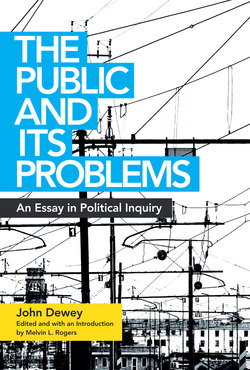The Public and Its Problems

Реклама. ООО «ЛитРес», ИНН: 7719571260.
Оглавление
Джон Дьюи. The Public and Its Problems
Отрывок из книги
THE PUBLIC AND ITS PROBLEMS
An Essay in Political Inquiry
.....
Third, new studies in human psychology and politics at the beginning of the twentieth century merely confirmed the ease with which the people were manipulated. In doing so, these studies undermined the very premise on which democracy rested—that ordinary individuals were capable of collectively governing themselves if given the opportunity. What Maine had argued polemically in the 1880s, a new breed of scholar would maintain, but now with the support of empirical facts. French sociologist Gabriel Tarde (1843–1904) and British sociologist and political scientist Graham Wallas (1858–1932) effectively elucidated the irrationality of the democratic public and its tendency to be short-sighted and biased.53 By the beginning of the 1930s, Harold Laswell (1902–1978), a leading American political scientist, could declare, “The findings of personality research show that the individual is a poor judge of his own interest.”54 Amid the constant evidence that public opinion was irrational, that the people were easily duped, and that partisan politics exacerbated these problems, many believed that if democracy continued it would have to be grounded in something other than the shifting and conflicting desires of ordinary people.
Democracy required a dose of realism to chasten its loftier vision. The emergence of democratic realism constituted a fundamental shift away from the idea of a deliberative public that was central to the Progressive Era. Searching for a new basis of authority, grappling with the possibility of retrogression and the irrationality of the public, many turned to a vision of democracy based on scientific expertise and administrative efficiency. “The world over,” explained the Australian sociologist Elton Mayo (1880–1949) in 1933, “we are greatly in need of an administrative elite.”55 Situated between Tarde and Wallas on the one hand, and Lasswell and Mayo on the other, Lippmann popularized the arguments of the former and prefigured the reflections of the latter. Lippmann further supported the irrationality of the democratic public in his two works Public Opinion (1922) and The Phantom Public (1925), while simultaneously offering an attenuated vision of democracy. What Americans seemed to be without in 1914—namely, masters and guardians—Lippmann would now address in these two somber works. Understanding the meaning of Dewey’s argument as found in The Public and Its Problems requires that we first understand Lippmann’s position.
.....